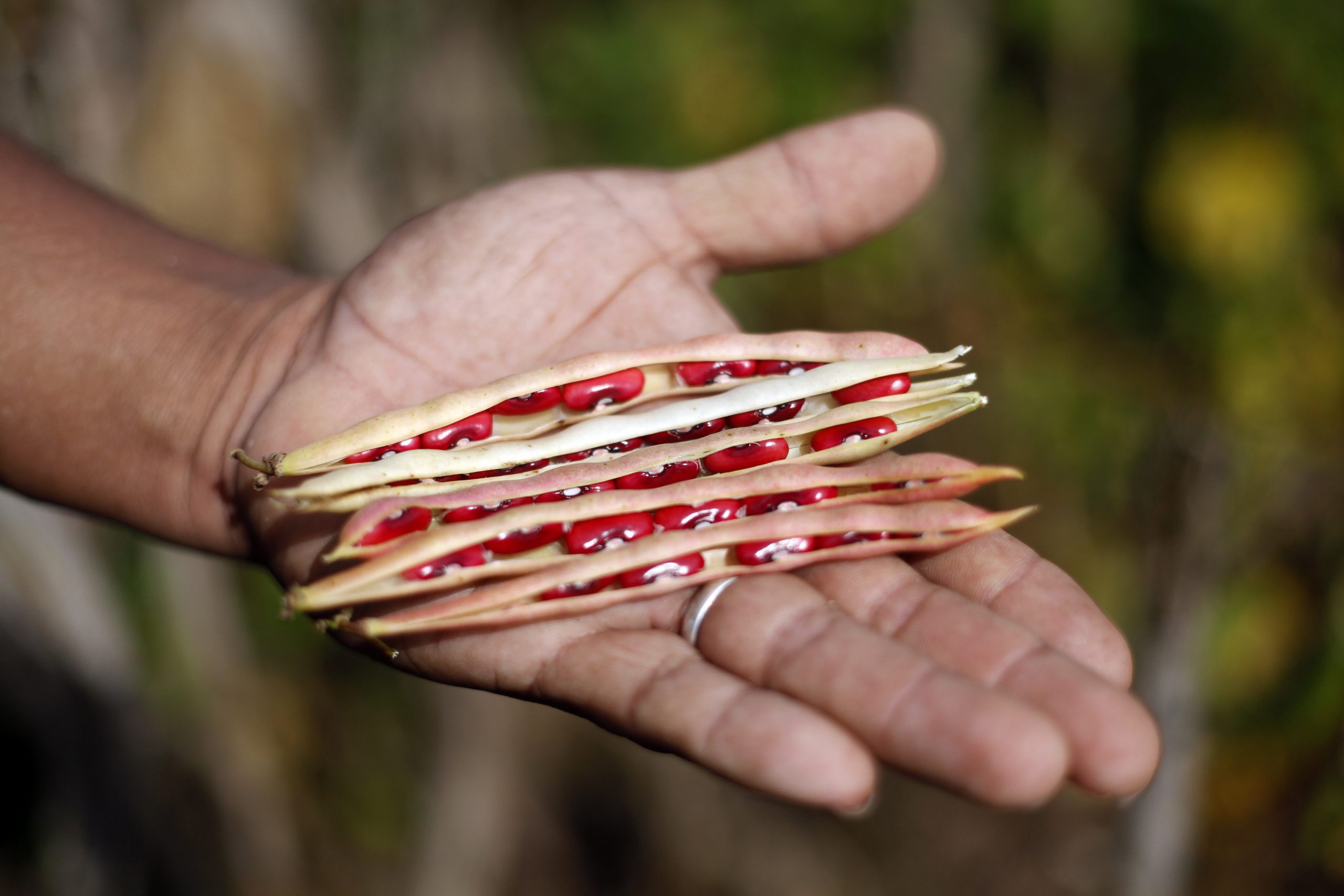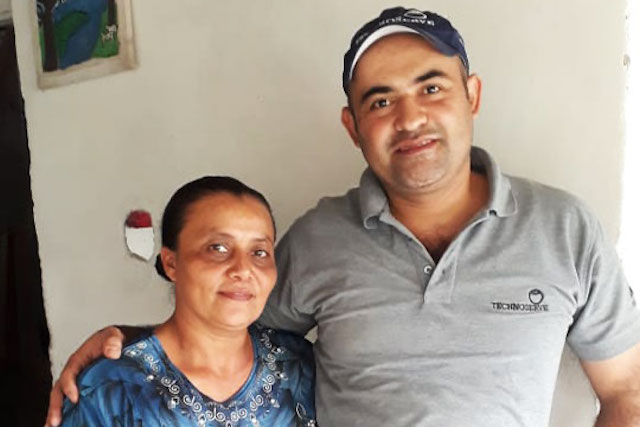Lasting Impact Spotlight: María Castillo
In this series, we check back with TechnoServe program participants who were previously featured on our blog, documenting how their lives have changed and progressed. María Castillo is a farmer and the president of the Mujeres Valientes association, which sells drought-resistant beans and other agricultural supplies to farmers in southern Honduras.

Many communities in rural Honduras lack access to employment opportunities outside agriculture. As a result, when crop yields are low, families are often left vulnerable to poverty, violence, and economic instability. In Jicarito, a small town 80 miles outside Tegucigalpa, 12 courageous women decided to come together to change that. Through the MAS program – funded by the United States Department of Agriculture (USDA) – they formed a rural savings and loan association (CRAC) called Mujeres Valientes (“Courageous Women” in Spanish).
María Castillo is the president of the Mujeres Valientes association, which sells drought-resistant beans and other agricultural inputs to farmers in Jicarito at lower prices. The women also run a field school to train other farmers.
“We needed to work together to improve economic security for the sake of our children, our homes, and our communities,” Maria says in our original blog post from August 2016.
In 2015, the farmers who worked with the loan association increased their bean yields from between 850 to 1,400 kilograms per hectare to over 2,200 kilograms per hectare. Improved seeds and better market access has helped farmers in Jicarito increase their productivity, earn more money, and improve food security in their community.
We checked in with María three years later to see how her life has changed and progressed.
How is your organization doing now?
“We have been growing beans together since 2013. Thanks to the MAS program, we became businesswomen. Our association is still working – we sell agricultural inputs and improved seed at lower prices than the competition. This helps our community’s economy. The program also helped us find formal markets for the sale of our beans. Before, we had to work with middlemen, which would reduce our take-home pay. Today, we get higher prices for our seed by selling directly. This year, Mujeres Valientes sold 60,000 kilograms of beans to the Honduran Institute of Agricultural Marketing (IHMA). We also sold 3,000 kilograms of improved seed through a seed fund administrator.”

What has changed for you in the last few years?
“Although we are no longer benefiting from MAS assistance, we continue putting into practice the things we learned about bean cultivation. The training on organization and market linkages was particularly helpful. Our seed fund administrator strengthens us as a group and helps us make better decisions.”
How are you using the money from your business?
“Being part of the project was very beneficial for my organization and my family. Before, we sold to a middleman for half price, but now we have more market options. The profits from the sale of the bean crop are used to buy food and medicine and to pay for house repairs. Recently, we were finally able to fix the roof of the house. We also allocate part of the profit to plant more beans.”
How are you continuing to apply what you learned from TechnoServe?
“With the MAS project, we learned how to sow beans using good agronomic practices and how to use seeds to improve productivity and have better yields. They also taught us how to negotiate our product in formal markets. The project finished two years ago, but we continue applying what they taught us. We have done very well with the community seed fund administrator. This opened the door for us to have an extra income in our homes and thus give my family a better life.”
How has your success affected other people?
“Through the experience with MAS, our organization continued to commercialize beans and access formal markets. We have had very good results since bean volumes have increased, thus achieving better income. The important thing is that we are still together as a group of women helping our community providing quality products at low prices.”
How has your business and your training from TechnoServe helped you become more resilient to problems?
“Since the program came to our community, we have had the opportunity to use improved seeds to increase productivity. These seeds can better tolerate pests and diseases. Now we have more information about the bean crops. Before, we used to grow bad quality beans and have low productivity because we did not know the best practices. We also learned that one of the most important components is marketing. The program taught us to organize ourselves in our seed bank and make it profitable. It is much easier for us to face challenges as a group rather than as individuals.”




